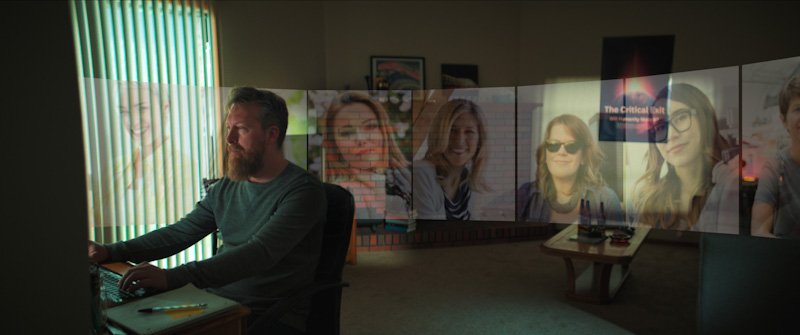NCLA Amicus Brief Says Chestek Ruling Removes Democratic Oversight from USPTO Rulemaking
“[T]he Federal Circuit’s removal of this accountability in its Chestek ruling is particularly problematic in the context of the USPTO, which is headed by a single Director instead of a multi-member commission.”
Last week, the New Civil Liberties Alliance (NCLA) filed an amicus brief with the U.S. Supreme Court urging the justices to grant the petition for writ of certiorari in Chestek PLLC v. Vidal, which challenges the U.S. Patent and Trademark Office’s (USPTO) promulgation of rules requiring trademark applicants to disclose their domicile address. The NCLA’s brief contends that, by allowing the USPTO to act without following notice-and-comment rulemaking under the Administrative Procedures Act (APA), the U.S. Court of Appeals for the Federal Circuit has uniquely isolated the USPTO from democratic oversight for rulemaking that creates profound economic effects.
USPTO’s Own NPRMs Underscore Agency’s Belief That Notice and Comment is Required
Trademark law firm Chestek PLLC filed its petition for writ of certiorari in the middle of May, two months after the Federal Circuit affirmed a trademark examiner’s refusal to register a trademark to Chestek for failure to list the applicant’s domicile address. In the petition, Chestek argues that the Federal Circuit’s ruling improperly eliminates a statutory requirement found at 35 U.S.C. § 2(b)(2)(B) establishing that the agency may make regulations that “shall be made in accordance with section 553 of title 5,” which governs notice-and-comment rulemaking under the APA.
As NCLA’s amicus brief points out, the statutory reference to the APA’s notice-and-comment requirements was created by the American Inventors Protection Act (AIPA) of 1999, which also established inter partes reexamination proceedings as a post-issuance patent review process that could lead to the cancellation of patent rights. Rules surrounding these new proceedings were likely to have a significant economic impact regardless of their procedural nature, NCLA argues, leading Congress to include the statutory reference to notice-and-comment rulemaking when it enacted the AIPA.
The Federal Circuit’s absolution of the USPTO’s refusal to follow notice-and-comment rulemaking is even more glaring given the agency’s engagement with such procedures in cases before the appellate court. NCLA notes that, in Cooper Technologies v. Dudas (2008), the Federal Circuit’s finding the USPTO’s interpretive rule at issue not subject to notice-and-comment requirements was itself dicta that wasn’t pertinent to the ultimate holding in the case, as the agency did in fact engage in notice-and-comment rulemaking to establish inter partes reexamination proceedings. In Chestek, although the USPTO issued a notice of proposed rulemaking (NPRM) seeking public comments on domicile requirements, the Federal Circuit’s ruling in the case essentially held that the NPRM was unnecessary for all promulgated rules, not simply the applicant domicile address requirement at issue.
Unilateral Decision-Making of USPTO Director Creates Democratic Oversight Concerns
There was no reason for Congress to insert Section 2(b)(2)(B)’s reference to the APA simply to reconfirm that the agency was not subject to notice-and-comment rulemaking, which was the case for 45 years leading up to passage of the AIPA, NCLA argues. NCLA also contends that the committee draft of the AIPA called for “notice and opportunity for full participation by interested public and private parties,” further underscoring Congress’ intent to hold the USPTO to those requirements. Any amendments between that portion of the committee draft and the statutory language ending up at Section 2(b)(2)(B) are merely stylistic and not substantive, the amicus brief asserts.
The NCLA further argues that the Federal Circuit’s Chestek ruling ignores the fact that the interpretive and procedural rule exemption to Section 553(b)’s notice-and-comment requirements is not applicable when “notice or hearing is required by statute.” Section 2(b)(2)(B) enacted by the AIPA is a specific statute having primacy over the general rules of the APA, NCLA notes. While that statutory subsection references the APA’s notice-and-comment requirements, the amicus brief argues that the AIPA statute should be interpreted as creating a more robust rulemaking requirement than the default application of the APA.
Notice-and-comment rulemaking requirements were enacted under the APA to bring democratic accountability to federal agencies and ensure public participation in the development of their regulations. The NCLA argues that the Federal Circuit’s removal of this accountability in its Chestek ruling is particularly problematic in the context of the USPTO, which is headed by a single Director instead of a multi-member commission. As such, the Director is able to act without input in promulgating procedural rules having significant economic impacts, potentially making the agency’s rulemaking even less democratic than before passage of the APA. For these reasons, NCLA urges the Supreme Court to take up the petition for writ and reverse the Federal Circuit’s decision below.
Image Source: Deposit Photos
Author: curaphotography
Image ID: 8449808
Steve Brachmann
Steve Brachmann is a graduate of the University at Buffalo School of Law, having earned his Juris Doctor in May 2022 and served as the President of the Intellectual Property […see more]







